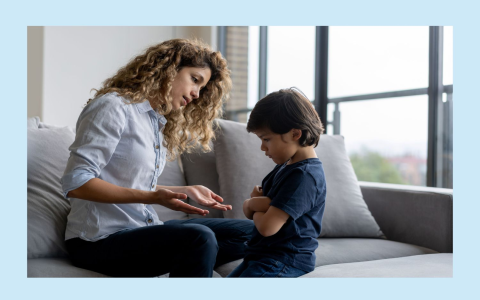So, you’re looking at your teenager and thinking, “What on earth happened?” Yeah, I’ve been there. It felt like one minute I had this kid who, you know, mostly listened, and the next, it was like a stranger had moved in, one who specialized in slammed doors and monosyllabic grunts. It was a real mess, let me tell you.

My First Brilliant Ideas (That Weren’t)
First off, I did what I thought any good parent would do. I cracked down. Rules got stricter, privileges vanished. I raised my voice. A lot. I thought, “They just need to know who’s boss.” Spoiler: that didn’t work. It was like pouring gasoline on a fire. Every rule I made, they found a way to bend it, break it, or just plain ignore it. The shouting? Just led to more shouting, from both sides. My home felt like a warzone.
Then I swung the other way. I tried being the “cool” parent. “Hey, buddy, what’s up? Let’s talk.” I tried to be their friend. That was a disaster too. They saw right through it, or worse, took advantage of it. It was like I had no authority at all, and honestly, I felt like a complete failure. I was just flailing around, trying anything, and nothing was sticking. I spent a lot of nights just staring at the ceiling, wondering where I’d gone so wrong.
Hitting Rock Bottom and a Small Light
I got to a point where I dreaded coming home. I dreaded the arguments, the sullen silences, the feeling of complete helplessness. It was exhausting. I remember one particular evening, after a truly epic meltdown (theirs and, if I’m honest, a bit of mine too), I just sat there in the quiet, feeling utterly defeated. I thought, “This can’t be it. There has to be another way.”
It wasn’t like a lightning bolt or anything. It was more like a slow dawning. I started reading a bit, talking to a few other parents who weren’t pretending everything was perfect. One thing kept coming up, not as a quick fix, but as a different way of looking at things. It was about shifting my own approach, rather than trying to force them to change. That was a tough pill to swallow, because, in my mind, they were the problem.
What I Actually Started Doing (And It Was Hard)
So, I decided to try something different. It wasn’t easy, and it felt super unnatural at first.

I made a conscious effort to stop reacting to every single provocation. That was huge. Teenagers, especially out-of-control ones, are masters at pushing buttons. I learned to pick my battles. Did it really matter if their room looked like a bomb hit it, as long as they were safe and not, you know, setting the house on fire? Okay, maybe a bit of an exaggeration, but you get the idea.
Then, I started to actually listen. Not listen to reply, or to lecture, but just to hear what they were saying, or even what they weren’t saying. I tried to understand the frustration or anger behind the attitude. Sometimes, there wasn’t much there but teen angst, but sometimes, there were real worries or pressures I hadn’t seen.
Boundaries were still important. This wasn’t about letting them run wild. But the boundaries became more about mutual respect and safety, rather than arbitrary rules I’d cooked up. And when a boundary was crossed, the consequences were discussed (sometimes calmly, sometimes not so calmly, we’re all human) and, crucially, I followed through. Consistency, man, that was, and still is, the hardest part. It’s so much easier to give in when you’re tired.
I also had to work on myself. I realized a lot of my anger and frustration was coming from my own fear. Fear of them failing, fear of what others would think, fear that I was a terrible parent. Dealing with my own stuff helped me approach them with a bit more calm.

Where We Are Now
Look, it wasn’t a magic wand. Things didn’t turn around overnight. There were still plenty of bad days, setbacks, and moments I wanted to scream into a pillow. But slowly, very slowly, the atmosphere in the house started to change. The shouting matches became less frequent. Sometimes, we even had actual conversations.
It’s still a journey. Some days are better than others. But we’re not in that constant state of crisis anymore. The biggest thing I learned? I couldn’t control my teenager. What I could do was control my own reactions, change my approach, and try to build a different kind of relationship. It was less about “fixing” them and more about changing the dynamic between us. It took a lot of trial and error, a lot of patience (which I often ran out of), and a willingness to admit that my old ways just weren’t cutting it. It’s a tough road, no doubt about it, but getting to a place where you can actually connect with your kid again, even a little? That’s worth all the effort.










